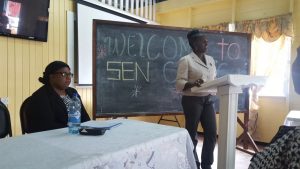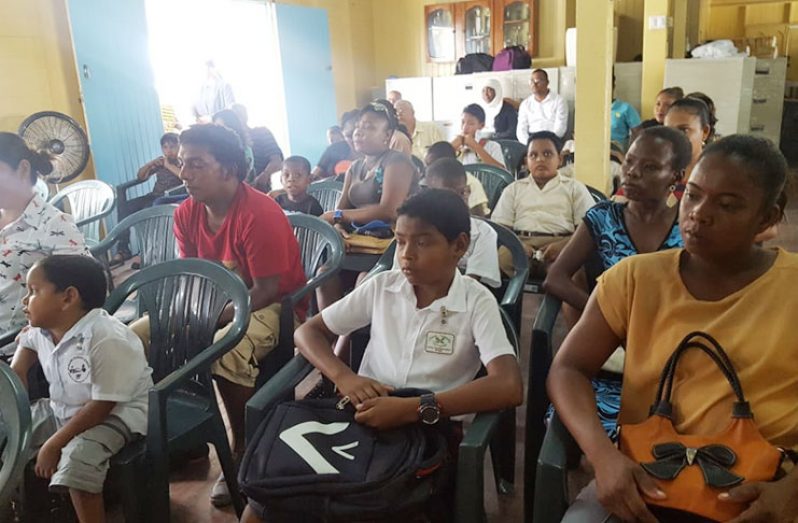REdO calls for a Special Needs Centre in Region Two
By Indrawattie Natram
OFTENTIMES parents or relatives with children living with disabilities may feel embarrassed to go out in public, but this feeling should be shunned since those children are special in every way according to National Special Education Needs (SEN) Officer Ms. Savvie Hopkinson. Hopkinson during an interview with Pepperpot Magazine said that parents of such children should be proud and also make it a priority to send them to school. With that, Hopkinson optimistically said, that there is hope and help available through the Ministry of Education and NCERD, for children living with disabilities and in the school system. The Special Education Needs (SEN) Unit within the Ministry of Education is there to assist with such children.

The unit which falls within the National Centre for Educational Resource Development (NCERD), was formed with the mission to understand, translate, interpret and support policies and plans of the Ministry of Education, relative to Special Needs Education as outlined in the National Education Strategic Plan. Its primary role is to catalyse those policies and plans, in order to accelerate the realisation of national education goals.
“The SEN Unit aims to improve the quality of teaching and SEN services offered throughout the national education system through professional development programmes, teacher training and the production of teaching materials developed in conjunction with other departments involved in the common pursuit of excellence in education. It is concerned with ensuring that the school system graduates the best-prepared students to further their endeavours and become productive citizens leading satisfactory personal lives and contributing to their communities,” Hopkinson said.

During a SEN clinic held recently in Region Two at the Department of Education boardroom, the National SEN Officer in her remarks said, the most common types of learners with special education needs are encountered within the mainstream classrooms of the schools. She said they display learning exceptionalities, which require special educational provision.
“Learners with special education needs can benefit from screening assessments, the assessment is an integral part of instruction, as it determines whether or not the goals of education are being met. We can, therefore, say that the primary purpose of the assessment is to improve students’ learning and teachers’ teaching as both respond to the information provides,” Hopkinson said.
The SEN clinic is geared at recommending strategies that are concomitant with students’ learning styles. Teachers and parents, she said, will be provided with information on the skills to manage the child and provide the best home environment for the child’s development. At the moment, Region Two has 28 children living with disabilities from various Nursery, Primary and Secondary schools. The SEN clinic was held under the theme, “Embracing the Special Educational Needs Paradigm” and aims at identifying and accessing children who are suspected to have special education needs or those that are at risk.
Meanwhile, Region Two Education Officer (REdO), Nicola Matthews is calling on the government and the Region Two administration to consider establishing a Special Needs Centre in the Region. She was at the time speaking at a Special Education Needs Unit (SEN) clinic which was hosted by the Ministry of Education NCERD in the Region.
Addressing parents, teachers and education officers on the need for such a centre, in the department’s boardroom, Ms. Matthews said that such centre will be an asset for the region.

“I am thankful [that] for the first time in Region Two a SEN clinic is available to the children. I want to let you know that children with special needs are special, they may be living with some form of disabilities but those very children have hidden skills that can be developed such as Art. We as educators need to work with them and provide a positive environment for them to dwell in,” Matthews said.
She called on parents not to be embarrassed if they have children who are challenged or suffering from any form of disability – rather, they must be supporters. She said that many of the children that are suffering from various forms of disabilities are blessed with talents, and as such those talents can be developed once the resources are available.
With the establishment of the centre, she said, special teachers will be allocated to work with the children in helping to unlock their hidden potentials. When asked if there is any available place or land in the region for the establishment of the centre, the REdO said there are buildings that are available but permission must be given by the regional administration for such use.



.jpg)








